Check out Midday on WNYC‘s podcast: A Play on the Trans Experience, Through Voices of Family with Mashuq Mushtaq Deen, Resident Playwright at New Dramatists, who discusses the New York premiere of Draw the Circle.

Check out Midday on WNYC‘s podcast: A Play on the Trans Experience, Through Voices of Family with Mashuq Mushtaq Deen, Resident Playwright at New Dramatists, who discusses the New York premiere of Draw the Circle.

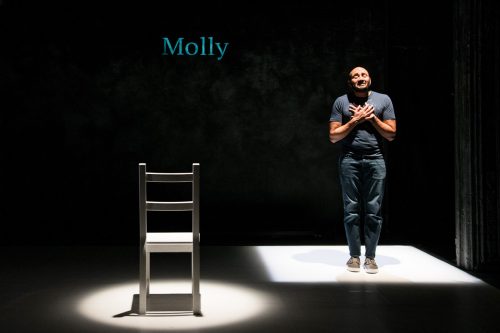
In Draw the Circle, a deeply moving one-man work now in its New York premiere at Rattlestick Playwrights Theater, Mashuq Mushtaq Deen tells the story of his transition not through his own eyes but through the perspectives of those around him: loved ones, friends from high school, doctors and nurses, members of his trans support group. First produced in August 2016 at PlayMakers Repertory Company in Chapel Hill, North Carolina, the play is a brilliant intervention into the constrained and prescriptive autobiographical narratives available to queer and trans kids growing up Muslim in post–9-11 America. In writing himself out of his life, Deen enables viewers to access a profound empathy not only for his journey, but also for the struggles of his family and his partner to accept his sexual orientation and gender identity.
Over the course of ninety minutes, Deen takes on a variety of crucial personas — his mother, his father, his partner Molly, his niece Rabia — in addition to the more minor, fleeting ones listed above. Under the skillful direction of Chay Yew (who also did the set design), Deen’s own presence is symbolized throughout by the only object that appears onstage: a white wooden chair that the performer, who also wrote the play, moves around as he toggles from character to character. As Deen inhabits the voices of his friends and family, each individual’s name is projected onto the back wall of the stage. Shifts in persona are also delineated through performance (intonation, accent, posture, positioning), changes in lighting (Mary Louise Geiger), and sometimes sound (Matt M. Nielson).
For many queer and trans Americans who have grown up in Muslim families, storytelling is a business fraught with risk. Those who speak too openly about the complexities of navigating family, faith, and culture can be perceived as reifying Orientalist stereotypes about Muslim families, including that they are homophobic and anti-woman. But there is also a price to be paid for those who dress up their experiences in anticipation of white consumption, sweeping under the rug the challenges they’ve faced in coming out or transitioning. The pain and hardship is real, too, as it is for so many people who come out. Moreover, while reporters and other media-makers are sometimes eager to interview queer/trans Muslims about their lives, they are also quick to reduce these stories to catchphrases or one-liners. After the Orlando shooting nearly two years ago, journalists flooded the inboxes of LGBTQ Muslim activists with interview requests, then turned around stories about how community members were trapped between their two opposing (and, presumably, irreconcilable) selves. “So many articles began to divide our identities as if they were not inhabited in the same bodies,” lamented one queer Muslim at the time.
It’s important to note that Deen does not describe himself as Muslim, or identify as part of the LGBTQ Muslim community. But he’s still penned a play whose very structure troubles the static, flat stereotype of the queer Muslim that we usually encounter in media. We aren’t shielded from Deen’s mother’s shame, or disappointment, or frustration at his transition. We hear it in her own words and voice, along with the reality of what she stands to lose: the respect of family and friends, the future she imagined. Yet we also see her real concern for his welfare and her profound anxieties about his emotional well-being, as when she calls to check up on him after his top surgery. “The worst thing is to imagine your child alone in life,” she notes, fearing the kid she brought into the world will never be married.
Deen struggles with his family’s initial rejection of his choices, but the overwhelming feeling he expresses toward them isn’t anger but love. “I break their hearts,” he tells Molly after he discloses to his parents that he’s getting surgery, tears streaming down his face. Deen’s relationship with his mother and father is wracked with the tensions familiar to so many second-generation immigrant youth: what the extended family or local Indian community will think; a child’s duty to his/her parents; diverging views on the nature of love, happiness, and self-fulfillment. “I will whisper ‘I love you’ quietly, over and over again, that it might be carried on the breeze above your battlements, through your defenses, and with luck, perhaps it will lodge in your heart,” Deen writes in a letter to his mother, read by Molly at the end of the play. “If I say it enough, gently, unarmed and still, perhaps someday your heart will be healed.”
But while Deen’s relationship with his family forms one of the core themes of Draw the Circle, it isn’t the only one. We travel with Deen through the other defining moments of his life, too: His time in a psychiatric hospital; his struggle to determine if and how to transition; his partner’s mourning of the butch dyke she fell in love with, along with her ultimate acceptance of the person he has become. “If she didn’t call, if she got home late, you worry when you’re with a butch,” says Molly of their life together pre-transition. “I don’t worry as much anymore. No one knows. Look at him!” But Molly struggles to adjust to being read as a straight couple. “He has a choice, to tell people he’s trans or not, not like when he was butch — and the choice is his, not mine. How fucked-up is it that I wish people did know?”
In effectively interplaying the two figures onstage — his physical body (in performance) and his true, phantom self (evoked by that lonesome chair) — Deen brings an impressive depth of feeling. Toward the middle of the evening, he takes on the voice of the man who raped him. “American women, mon, they must say ‘no’ or dey feel ashame’, dey do not own dare bodies but dey ant to be taken,” he says, staring back at the chair. Shortly thereafter, he adopts the voice of Molly as she talks about what it’s like when he has a flashback or disassociates. “It’s the worst feeling, to be face-to-face with the person you love, telling them, hold on, stay with me, I’m right here, and then watch her let go and fade before your eyes.”
“The only way I could bring her back from that was to get her to follow the sound of my voice,” Molly adds, as she cradles the chair in her lap and breaks into song. We watch as Deen examines himself from afar, trapped in a moment of fear and vulnerability — a moment of self-exposure so raw and naked it took me aback. At a time when the words queer, trans, and Muslim automatically elicit a series of assumptions, racist stereotypes, and preordained narratives, Deen has managed to pull off a feat that is expansive and nuanced, one that encompasses many (sometimes contravening) truths and realities without sacrificing a sense of emotional wholeness and generosity. For that, he should be applauded.
Read the full story by Aviva Stahl from The Village Voice here.
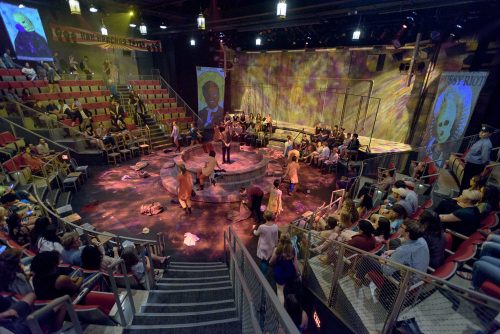
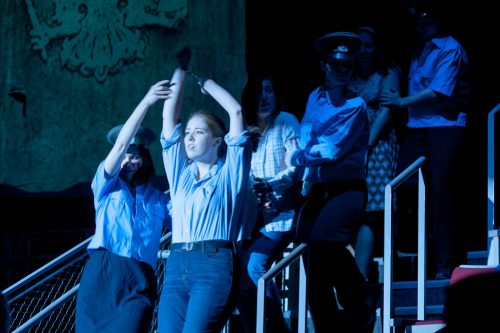
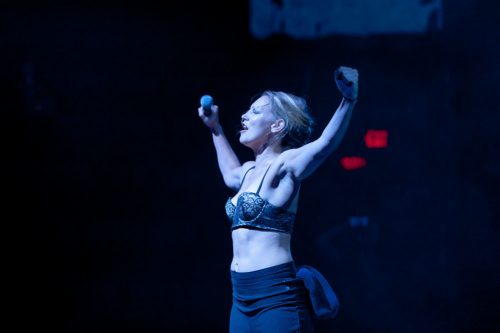
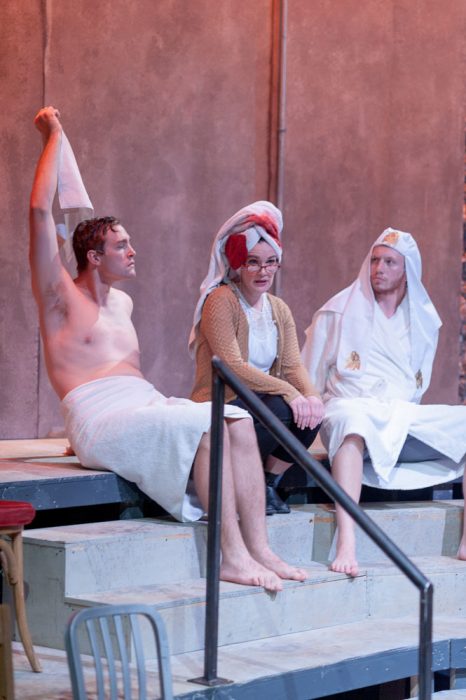
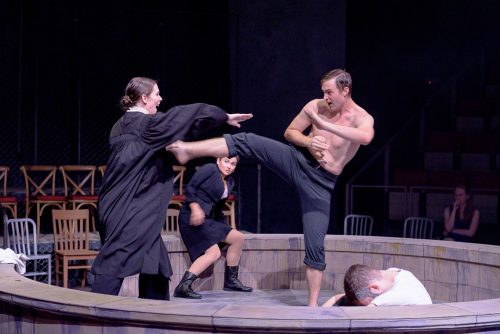
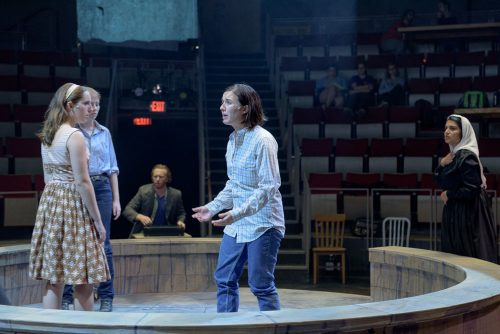
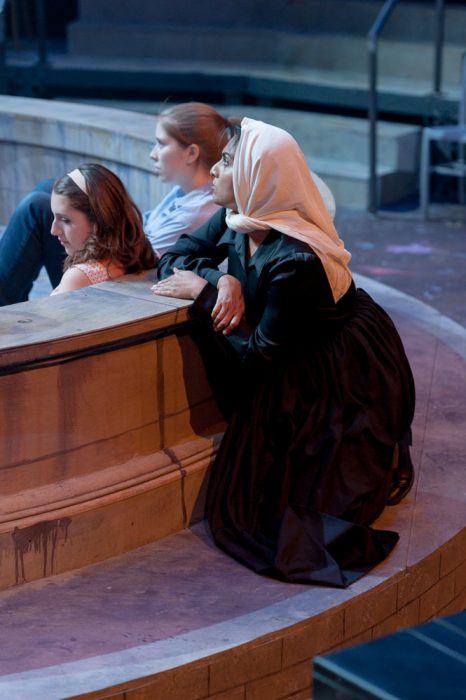
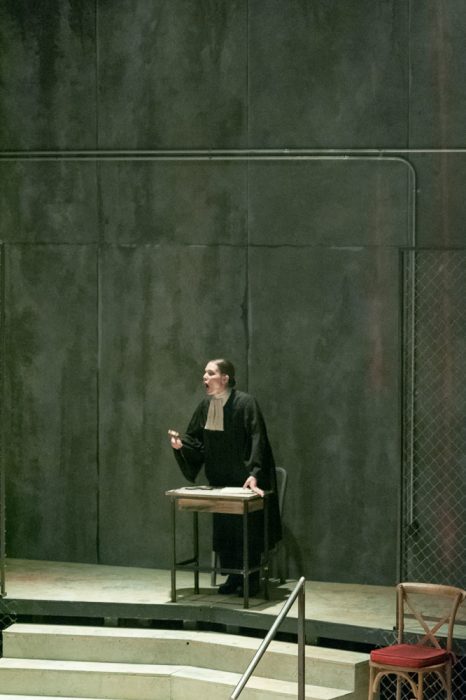
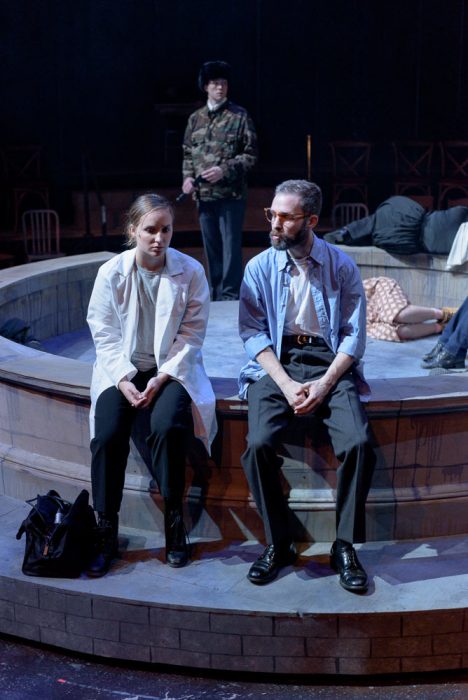
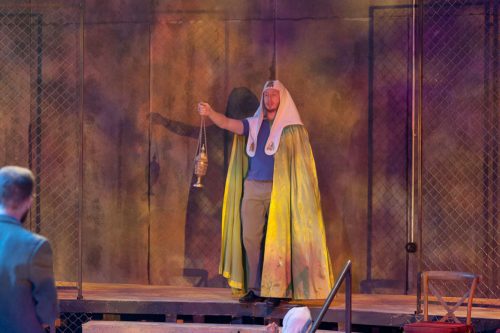
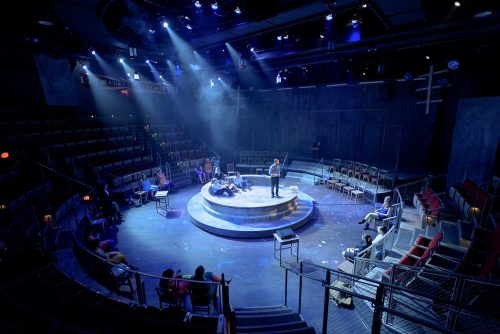
In the fall semester, alumni Peter Mills ’95 and Cara Reichel ’96 of Prospect Theater Company taught a Princeton Atelier seminar in which undergraduates created original musical theater works inspired by the work of the Princeton & Slavery Project. (Readings of a one-act musical drawn from their compositions will be presented at Nassau Hall Jan. 13.) In this audio feature, PAW intern Douglas Corzine ’20, a student in the course, takes us inside the challenges of telling these compelling stories in musical form.
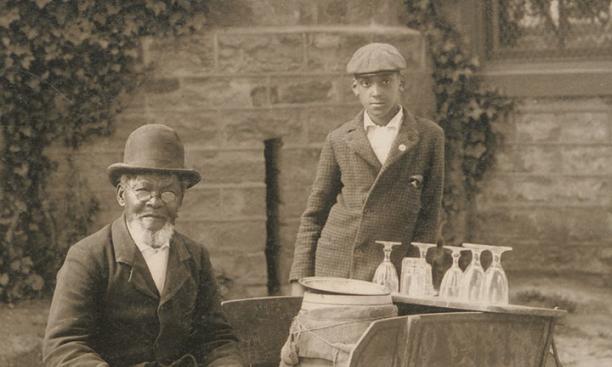
Listen to the full transcript from Princeton Alumni Weekly here.
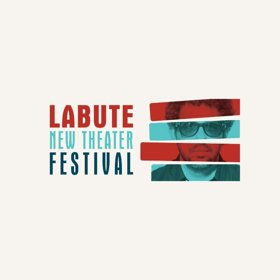
59E59 Theaters (Val Day, Artistic Director; Brian Beirne, Managing Director) welcomes the return of St. Louis Actors’ Studio with the LaBUTE NEW THEATER FESTIVAL, featuring the NYC premiere of one-act plays, including PERCENTAGE AMERICA by Carter W. Lewis. The LaBUTE NEW THEATER FESTIVAL begins performances on Thursday, January 11 for a limited engagement through Sunday, February 4. Press Opening is Sunday, January 14 at 7:30 PM. The performance schedule is Tuesday – Friday at 7:30 PM; Saturday at 2:30 PM and 7:30 PM; and Sunday at 2:30 PM. Please note: there is an added performance on Sunday, January 14 at 7:30 PM. Performances are at 59E59 Theaters (59 East 59th Street, between Park and Madison Avenues). Single tickets are $25 – $35 ($24.50 for 59E59 Members). To purchase tickets, call Ticket Central at (212) 279-4200 or visit www.59e59.org.
In PERCENTAGE AMERICA, a couple on a first date, hoodwinked by each other’s dating profile, parse a story on the local evening news for “alternative facts.”
The cast features Autumn Dornfeld (The Graduate on Broadway); Kelly Schaschl (NY debut); Spencer Sickmann (Last Days of Judas Iscariot for LA’s Lost Angels Productions); and Chauncy Thomas (To Kill a Mockingbird at Bay Street Theatre).
The design team includes Patrick Huber (scenic design); Jonathan Zelezniak (lighting design); andCarla Evans (costume and prop design). The Production Stage Manager is Seth Pyatt.
Carter W. Lewis (playwright, PERCENTAGE AMERICA) is currently serving as Playwright-in-Residence at Washington University. Prior to that he was Literary Manager & Playwright-in-Residence for The Geva Theatre Center (NY). Carter was also co-founder and Resident Playwright for Upstart Stage in Berkeley, California. He is the winner of several national playwriting awards including The Julie Harris – Playwriting Award, The State Theatre – Best New American Play, The Cincinnati PlayhouseA. Rosenthal New Play Prize (1996 & 2001), New Dramatist Playwriting Award, Playwright’s Center Jerome Residency, The Blanche and Irving Laurie Foundation Award (2003), and he is a two-time nominee for the American Theatre Critics Award. A sample of theaters that have produced his work include The Cincinnati Playhouse in the Park, Syracuse Stage, The Source Theatre, Florida Stage, Studio Arena Theatre, Arizona Theatre Company, The Round House Theatre, Merrimack Repertory Theatre, The Sacramento Theatre Company, The Ensemble Theatre of Cincinnati, The Phoenix Theatre, The Barksdale Theatre, American Stage, The New Repertory Theatre, The State Theatre Company, Florida Repertory Theatre, The Geva Theatre Center, The Repertory Theatre of St. Louis, The Berkshire Theatre Festival, San Diego Repertory Theatre, The Magic Theatre, and The Royal Court Theatre in London. His published works include Art Control, No-Preying, A Geometric Digression of the Species, Soft Click of a Switch, An Asian Jockey in Our Midst, and The One-Eyed Man is King. Other plays by Carter W. Lewis include Golf with Alan Shepard, Picasso Does My Maps, Longevity Abbreviated for Those Who Don’t Have Time, Women Who Steal, Men on the Take, American Storm by Integrity Out of Molly Brown, Kid Peculiar, Ordinary Nation,Evie’s Waltz, The Storytelling Ability of a Boy, The Cha Cha of a Camel Spider, Hit Story, Camden & Lilly,The Hummingbird Wars, The Gun in the Floor, and Echo Location.